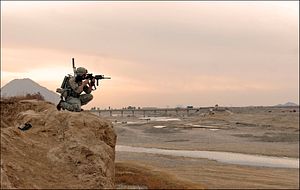As expected, on December 13, leaders from Turkmenistan, Afghanistan, Pakistan, and India attended the groundbreaking for the TAPI pipeline project in Mary, Turkmenistan. The 1,814 kilometer pipeline project is expected to cost at least $10 billion and planned to route through some of the most unstable parts of Afghanistan and Pakistan. The groundbreaking on Sunday was attended by Turkmen President Gurbanguly Berdimuhamedov, Afghan President Ashraf Ghani, Pakistani Prime Minister Nawaz Sharif, and Indian Vice President Mohammad Hamid Ansari.
Last week, ahead of the TAPI groundbreaking, I wrote that it is neither the diversification Turkmenistan needs nor is the security of the project something to be dismissed casually.
The groundbreaking was nonetheless rife with hopeful statements.
“TAPI is designed to become a new effective step towards the formation of the modern architecture of global energy security, a powerful driver of economic and social stability in the Asian region,” Berdimuhamedov said. Sharif commented that the project “will usher in a new era” and Ansari said it was “the first step to the unification of the region.” Ghani highlighted the political will behind the project.
According to several Afghan and Pakistani news outlets, Pakistani Minister of Defense Khawaja Asif (who is also the minister of water and power) made some interesting comments during an interview with BBC Urdu. Asif reportedly said that Pakistan could use its influence with Taliban leaders to keep the pipeline safe. Per Pakistan’s The Nation, Asif said, “We will wield all our positive influence to ensure our interests… the project is also important for Afghanistan and that is why no Afghan stakeholder will oppose it.”
The Nation also says that Asif made reference to “the case of American oil company Unicol [sic] whose own Afghanistan pipeline was protected by the Taliban when the group was in power between 1996 and 2001.”
There’s plenty to unpack in that line and I am not positive exactly what Asif said, only what Pakistani and Afghan publications are reporting he said.
Unocal, a California-based oil company (now a subsidiary of Chevron), did head up a consortium intent on building a pipeline across Afghanistan in the late 1990s. The project, however, failed miserably. In late 1997, Unocal was negotiating with the Taliban to build the pipeline and even launched a program with the University of Nebraska at Omaha to train Afghans to construct it. The Washington Post reported in January 1998 that “The Taliban stands to collect $50 million to $100 million a year in transit fees if the pipeline is built, according to Marty F. Miller, a Unocal vice president.”
But through 1998, the arrangements deteriorated and then collapsed entirely, eclipsed by events. In February, Gazprom pulled out of the project. By August, the United States was launching cruise missile strikes on al Qaeda bases in Afghanistan in retaliation for the bombings of U.S. embassies in Kenya and Tanzania. At that point, Unocal stopped planning, saying that a stable government in Afghanistan was a necessity.
“We don’t have an agreement. We aren’t even sure who to negotiate an agreement with,” a Unocal spokesman said, according to a Wall Street Journal article at the time.
Needless to say, the same circumstances that doomed Unocal’s dream pipeline from Turkmenistan across Afghanistan remain in play today. Complicating the idea of negotiating protection of the pipeline with the Taliban is that the group isn’t even the unified front it once was. The strains of a 15-year insurgency, the death of its leader (and the two year cover up of that death), infighting over a successor (plus the possible death of that successor), and the appearance of other movements (such as ISIS) in the theater have made such a nuanced negotiation nearly impossible. Who would those backing TAPI talk to? And what kind of guarantee could they get that a different faction wouldn’t be hostile to the project?
Nonetheless, this is certain to feed into a rich history of conspiracy theories regarding pipelines and politics. In the course of digging up news reports from the 1990s and 2000s regarding the Unocal project, I stumbled upon this Slate article picking through the evolution of the conspiracy theory popular in the 1990s that the United States was supporting the Taliban so it could build a pipeline. After 9/11 the theory flipped to contend that the U.S. was bombing the Taliban so it could build a pipeline.

































